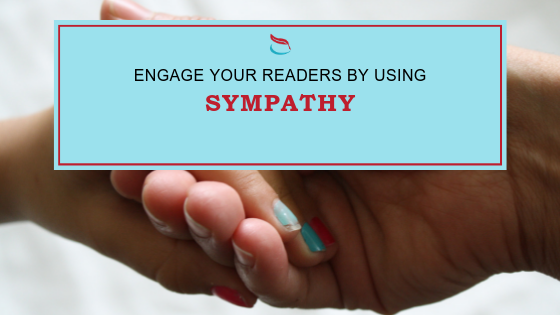|
If your main character is … non-standard: overly mean, vapid, or maybe just plain dumb, learn to evoke sympathy in your readers to keep them engaged in your story. I read Flowers for Algernon by Daniel Keyes and State of Grace by Hilary Badger back-to-back. That order wasn’t intentional. I read Flowers because I saw the title used in another book (Nicola Yoon’s Everything, Everything), remembered it was classic sci-fi, decided I should read it *because* it’s classic, and I put it on hold at my local library. I read it when it came in and then… had nothing immediately queued up to read next. I was skimming my book list and stumbled on Grace. It’s not actually my book. It’s my son’s. He asked me to buy it for him because he made a deal with his friend: He’d read her favorite book (Grace) if she read one of his (Harry Dresden). He never got into it. I figured, well, I read and edit YA and fantasy and *this* YA fantasy is a teen’s favorite, so I should read it. (A large number of the books I read are “shoulds” to keep myself up-to-date with current trends in novels. I don’t mind; it makes it way easier to pick out a book to read when I’m reading for a zillion different reasons, only one of which is pure entertainment!) So, I read these seemingly very different books back-to-back and was stunned by the similarities in story-telling technique. Both books start out with a not-obviously interesting character: Keyes’ Charlie is a literal moron (“retarded” in the mentally deficient meaning used in the late 1950s) and Badger’s Wren is a vapid teenager, obsessed with having fun. On the surface, these characters shouldn’t work. There’s no “hook” that lets us latch on to them. Most of us who read are not morons or vapid. How do we see ourselves in these main characters? Neither character is a deep thinker or even observer of the people and situations happening around them. Neither character seems to be a driver, or even able to drive, their own destiny. And yet… somehow Keyes and Badger are able to evoke sympathy in us for these seemingly simple characters, and that sympathy propels us along the story until the characters grow into themselves. Flowers for AlgernonFlowers is written in first person POV, and Charlie is a moron. It’s rather difficult to read Flowers at first (unless you’ve had practice with a kid whose school told students to write phonetically and worry about spelling later):
Those misspellings aren’t mine. This is how Charlie hears the words and translates them to the page. Every time Charlie writes (in the first few chapters), it’s this painful phonetic writing with a lot of repetition (Keyes and his editor are GENIUSES, keeping just enough repetition to show us Charlie but not so much we want to gouge our eyes out). But… Charlie is also earnest in his single-minded desire:
It’s this earnest desire to “be smart” that keeps us reading. Charlie wants very much to be smart, and I found myself reading more: why does Charlie want to be smart? What does he think he’ll get in return? Can the scientists help him?
As Charlie writes more, we see events that have happened to him during his life, some of them awful, but Charlie never saw them as awful when they happened. We see these stories from two points-of-view: Charlie before he is smart, and Charlie after. (Spoiler alert: the scientists DO make Charlie smart.) His first viewing of events pains us because we see the subtext he didn’t. We see him laughing along with his own degradation as people he thinks are his friends make fun of his deficiency. Worse, we see the events AGAIN as Charlie re-processes them once he’s “smart” enough to see the subtext himself. (Honestly, this is one of the most relentlessly tragic books I think I’ve ever read.) Our hearts break all over again. As Charlie “gets smart,” our sympathy for him grows and becomes sympathy for ourselves because NOW we can begin to see ourselves in him. The pre-smart Charlie couldn’t question anything. The smart-Charlie wonders about everything.
What does it mean to be human? How do you live a good life? How do you create a loving relationship with someone else? These are all questions we often struggle with and watching Charlie come at them from an educated innocence lets us see these issues from a new angle.
Keyes uses our sympathy for Charlie’s innocence and child-like desires to draw us along the story until Charlie becomes sophisticated enough to lead us on his own. State of GraceState of Grace starts out with a similarly child-like character. Teenaged Wren (she’s 16 or 17-ish) appears singularly interested in having fun:
Wren has both the simplistic desires of a child and the childlike ease of accepting and following authority. (And if you’ve raised/are raising a teenager, you know this is SO not the typical case!)
The first few pages are all about Wren pursuing hedonistic activities with very little responsibility of any kind. Even the teens for whom this book is written aren’t living this life, so what keeps us going? It’s that sympathy again. Quickly, Badger shows us that not all is right in Wren’s world, and even when Wren can't (or won't) see it, we do.
Wren is experiencing something strange, something she “shouldn’t” and it’s her fear that evokes sympathy in us. We’ve all felt (especially when we were teens!) that we didn’t fit in and that not fitting in is dangerous because it means we’re all by ourselves in this big scary world. (Isolation is a cruel punishment/torture in almost every culture.) We keep reading Grace to see how Wren handles her fear and doubts, to cheer her on when she’s feeling “prenormal.” Our sympathy keeps us reading until Wren has grown sophisticated enough (in her doubts, in her searching for truth/meaning) to lead us in her own story, just like Charlie. CodaEverything you read has the capacity to teach you something: about yourself, about your world, and (perhaps most importantly) how to write better. If you like this idea of engaging a reader's sympathy, you may also want to consider reading the Thomas Covenant series by Stephen Donaldson. Donaldson's anti-hero's actions are profoundly unheroic. About half the people I know who read this series (it came out in the late 70s and is STILL in print) threw the book across the room and quit forever and the other half kept going, grudgingly, after they picked the book up off the floor. That anyone kept going at all (and I was one), is, I think, a huge testament to the power of sympathy. Some backgroundA thousand years ago* I wrote a post about how reading 1000 books changes your writing. I wrote a few articles*** about different techniques you can learn by reading different books. I wrote about how I really don’t like rating books. So much of rating is based on personal preference and what I like you may not and vice versa.** And then… I didn’t write anymore. Hah! That changes now. * Three. Three years ago. ** Plus… I know just how long it can take to write, rewrite, edit, re-edit, format, re-format a book. Who am I to judge its quantitative worth? I liked it, I didn’t like it. I loved it enough to ready it a zillion times; I learned enough from reading it once. My 4 stars means nothing to you… *** Related articles
0 Comments
Leave a Reply. |
About ValI read, and then I tell you about what I've read. Whether you want to hear about it or not... Categories
All
Archives
July 2019
|



 RSS Feed
RSS Feed
